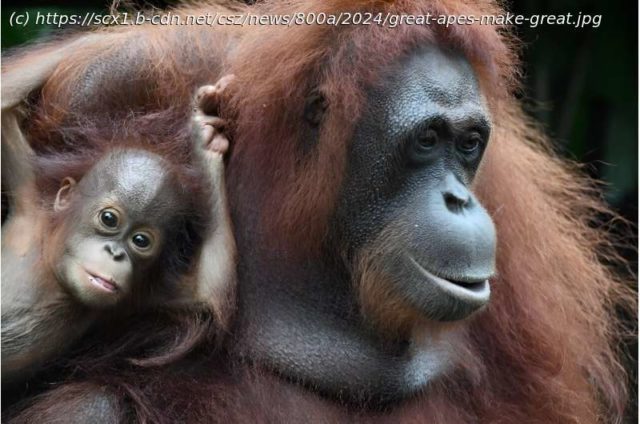A boisterous young chimpanzee slaps an adult in his family on the back, then scampers away and looks back to see the response to his cheekiness.
A boisterous young chimpanzee slaps an adult in his family on the back, then scampers away and looks back to see the response to his cheekiness.
Nothing yet, so the young chimp Azibo rolls back and dishes out another slap, this time provoking a reaction: the distracted adult waves a half-hearted swipe in his direction, shooing the troublesome youth away—though not for long.
This scene recorded at Leipzig Zoo in Germany is just one of many analyzed by scientists to show that great apes engage in playful teasing in a similar way to young human children.
Because all four species of great ape were recorded teasing each other, the “cognitive prerequisites for joking” probably evolved in a shared ancestor millions of years ago, the scientists said in a new study on Wednesday.
The researchers catalogued a wide range of classic japery. One ape would offer another an object, only to withdraw it at the last second. Or they would prevent their mark from grabbing something they want. Other tricksters simply did the opposite of what they were told. Some just liked to poke.






